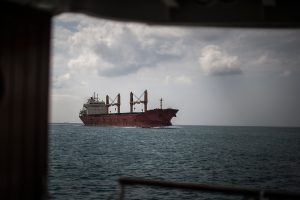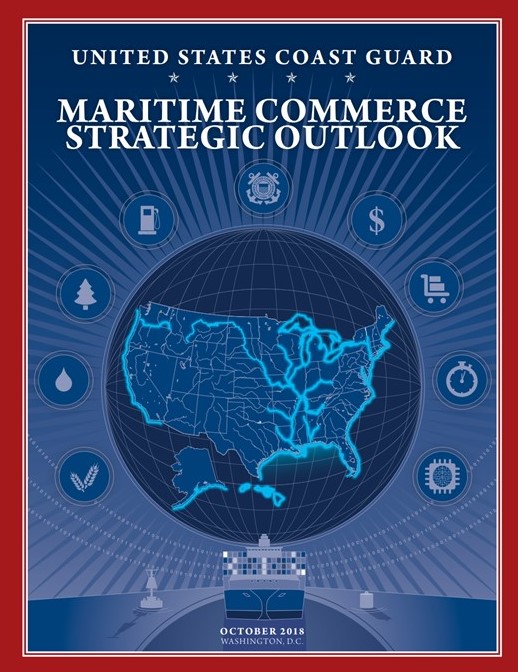Blog Editor’s Note: The US Coast Guard recently published its “Maritime Commerce Strategic Outlook.” As the service looks forward, it recognizes maritime’s dependence upon GPS for a wide range of things far beyond simple navigation. “MTS” is “Marine Transportation System” and we added the emphasis. Here are a couple excerpts:
CYBER THREATS AND OPPORTUNITIES TO THE MTS
Maritime industry operations are becoming more integrated through automation to reduce costs and improve efficiency. Modern automation depends on a single source of precision navigation and timing provided by the Global Positioning System (GPS). This dependence on GPS continues to increase as systems become more interconnected, automated, and complex. Although this creates efficiencies, new risks and challenges emerge. For example, GPS is susceptible to jamming and spoofing which could significantly impact vessel and port operations, resulting in cascading effects throughout the interconnected intermodal system. The trend in networked ship systems renders critical shipboard operations increasingly vulnerable to cyber attacks. Long-range monitoring of shipboard networked IoT systems further exposes these vessels and the MTS to risk via cyber attack.
THE FUTURE
There are three key drivers that will shape America’s maritime domain over the foreseeable future: 1) a drive to increase the capacity of the MTS; 2) a growing demand to reduce the environmental impacts of ships and facilities; and 3) the incorporation of new technologies, platforms, and operating concepts to increase efficiency, exploit opportunities, and reduce wasted capacity. While enhancing efficiency and reducing costs, these drivers will also increase the operational complexities and vulnerabilities of the MTS.
USCG Maritime Commerce Strategic Outlook



